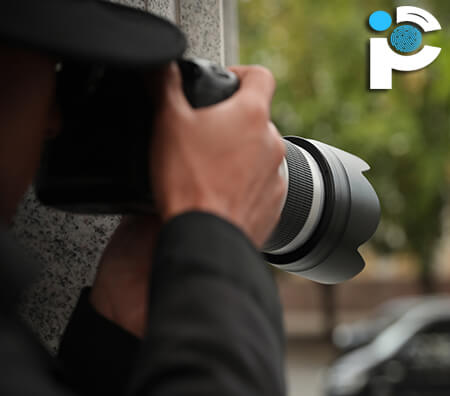How to Gather Proof of Cohabitation in the UK
September 24, 2023 - Reading time: 8 minutes
Updated on: September 4, 2025
Most people are open and honest about their living situations. Sometimes, though, the truth gets bent for personal or financial gain. Typical problem areas include unlawful subletting, tenancy fraud, or someone misrepresenting where they live to affect maintenance, benefits, or council support.

False claims can harm private landlords, small businesses, and local authorities. If you need proof of cohabitation in the UK, the key is lawful, clear evidence collected over time so a court or decision maker can rely on it.
Why Proof of Cohabitation is Necessary
People seek cohabitation evidence for different reasons. Common scenarios include:
- Landlords who suspect unlawful subletting or unauthorised occupants.
- Local authority or DWP investigators reviewing suspected Housing Benefit or Council Tax Support fraud.
- Ex-partners questioning living arrangements that could affect spousal maintenance or child maintenance.
- Solicitors who need cohabitation evidence for family court or divorce proceedings.
Misrepresentation of cohabitation is common in fraud cases. Government figures suggest benefit fraud costs taxpayers around £2 billion a year, and unlawful subletting of social housing is also treated as a criminal offence.
What Counts as Cohabitation?
Citizens Advice defines cohabitation as two people living together as a couple in a relationship equivalent to marriage. Cohabiting families in the UK have grown from 1.5 million in the mid-1990s to more than 3.3 million today, making it the fastest growing family type.
Not all cohabitation is fraudulent, but people may hide or misstate living arrangements to gain financially. Landlords also face cohabitation issues where tenants sublet without consent.
Requirements from the Courts
If you intend to rely on cohabitation evidence in court, you need credible proof. This usually means a detailed cohabitation report supported by photographic and video surveillance, ideally collected over two to three weeks. Courts prefer continuous monitoring rather than isolated snapshots.
Evidence Types
Useful evidence can include:
- Logs of activity in and out of a property
- Time-stamped photos and video footage showing occupants
- Consistent presence of personal vehicles
- Utility records, deliveries, or mail linking people to an address
Courts expect clarity. Smartphone images can be acceptable but high-resolution cameras and telephoto lenses provide stronger, more reliable evidence.
Records and Checks
Alongside surveillance, checks such as electoral roll searches, Land Registry entries, Companies House records, or OSINT research may support your claim. These help establish whether someone is genuinely living where they say they are.
Using a Private Investigator
Hiring a private investigator for cohabitation surveillance gives you:
- Access to professional cameras, telephoto lenses, and covert recording equipment
- Experience in gathering evidence lawfully and discreetly
- Insurance, ICO registration, and compliance with privacy rules
- Ability to prepare detailed reports accepted by solicitors and courts
Private investigators can save you time, provide impartial evidence, and raise the chance your case is taken seriously.
Frequently Asked Questions
What is proof of cohabitation?
Proof can include surveillance logs, photographs, video, and supporting records like utility bills or mail. The evidence should show consistent, ongoing residence.
How long should surveillance last?
Usually two to three weeks, to show an ongoing living arrangement rather than isolated visits.
Can proof of cohabitation be used in court?
Yes, if it is clear, continuous, and collected lawfully. Courts often rely on professional cohabitation reports from investigators.
Is unlawful subletting a crime?
Yes. In both social housing and private tenancies, unlawful subletting can amount to tenancy fraud and can be prosecuted.
You are reading the PrivateInvestigators-UK blog — home to the UK's leading detective agency. Learn more about us by visiting our homepage PrivateInvestigators-UK.com.